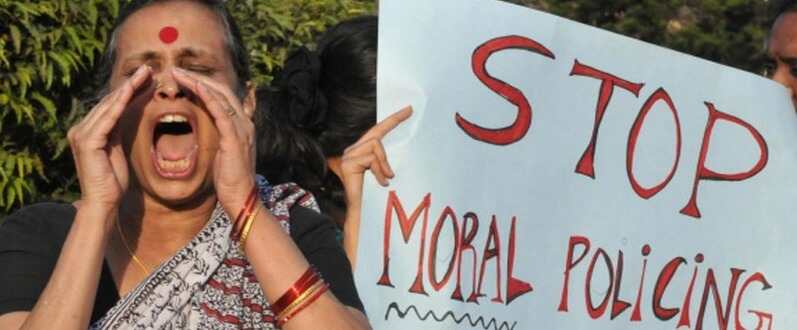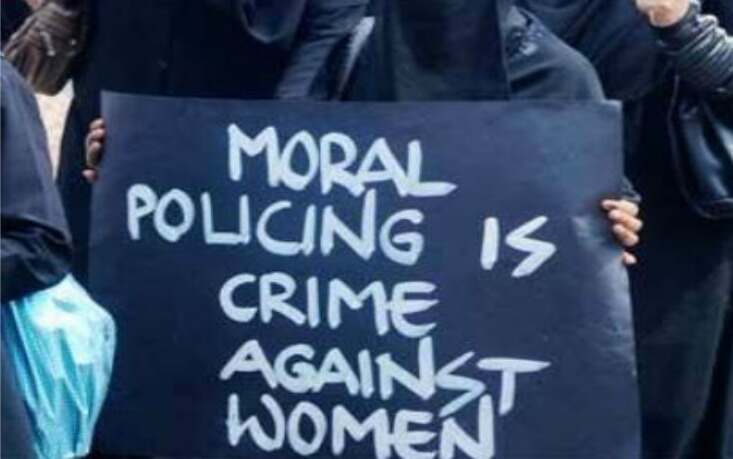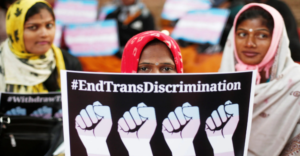Introduction
In an era that claims progress and equality, it is disheartening to witness the persistence of moral policing, particularly when it comes to scrutinizing and judging the actions of women. This practice, often rooted in societal norms and expectations, has the potential to escalate into a dangerous phenomenon – character assassination.
Female public figures, in particular, find themselves vulnerable to relentless attacks on their character, with moral policing acting as a precursor to a broader, more damaging assault.
The Recent Incident
Recently, students of BHU, an esteemed educational institution in the country were seen performing an act making fun of Deepika Padukone’s dating history. The performance looks like a satire on the actress’s idea of ‘casual dating’ which she spoke about during one of the recent episodes of the popular chat show ‘Koffee With Karan’ hosted by Karan Johar.
If anything, this shows that it is always the women whose lives are seen as public property for anyone to comment on. Especially, female artists are the most prone to moral policing. They do not have a “private life”. Everyone deems it within their rights to comment on their personal choices, especially if it’s regarding their sexuality or something that defies traditional patriarchal practices.
Moral Policing: A Double Standard
Moral policing is the enforcement of societal norms and values by self-appointed guardians of morality. While ostensibly aimed at preserving cultural and ethical standards, it often reveals a stark double standard when it comes to men and women. Women frequently find themselves under a magnifying glass, with their actions dissected and judged more harshly than their male counterparts.
The Slippery Slope: Moral Policing to Character Assassination
Moral policing, when taken to the extreme, can evolve into character assassination. This occurs when individuals or groups deliberately tarnish the reputation of another, questioning their integrity, morality, and overall character. For women, this transition is often swift and severe, fueled by societal expectations and deeply ingrained gender biases.
This is exactly what happened with Deepika Padukone. The students almost considered it their entitlement to mock the actor’s dating history to the extent that it became character assassination.
The Weaponization of Sexuality
One common tool in the character assassination of women is the weaponization of their sexuality. Society, unfortunately, often links a woman’s worth to her adherence to traditional moral standards, particularly in matters of sexuality.
Female public figures are disproportionately targeted, facing unwarranted scrutiny and baseless accusations that can irreparably damage their personal and professional lives. It is then that moral policing as an act, particularly for women, inherently becomes targeting, dangerous, and very much patriarchal.

The Unforgiving Public Eye
Female public figures, whether in politics, entertainment, or any other sphere, face an unforgiving public eye. Their every move is scrutinized, and any deviation from perceived moral standards becomes fodder for gossip, judgment, and character attacks.
The court of public opinion, driven by societal biases, can swiftly turn from moral policing to character assassination, leaving these women defenceless against a barrage of often unfounded accusations. And what is more infuriating is the fact that their male counterparts face no moral judgments for the same kind of actions. Misogyny and patriarchy at its best!
Impact on Mental Health
The toll of character assassination on women’s mental health cannot be overstated. The relentless scrutiny, moral judgments, and invasive speculation into their personal lives can lead to anxiety, depression, and a sense of isolation. This, in turn, can hinder their professional performance and perpetuate a cycle of unwarranted criticism.
This scrutiny and judgment that comes with moral policing can lead to various mental health challenges, including-
- Anxiety and Stress: Constant surveillance and judgment from society regarding their behaviour, appearance, and choices can lead to heightened anxiety levels. Women may feel a constant pressure to conform to societal expectations, fearing the repercussions of deviating from perceived norms.
- Depression: Persistent criticism and moral judgment can contribute to feelings of worthlessness and sadness. Women who are subjected to moral policing may internalize negative perceptions, leading to depressive thoughts and emotions.
- Low Self-Esteem: Moral policing often focuses on societal expectations related to appearance, behaviour, and lifestyle choices. Continuous scrutiny can erode a woman’s self-esteem, making her question her worth and value based on societal standards.
- Guilt and Shame: Unwarranted moral judgments can instil a sense of guilt and shame in women, especially if they are targeted for choices that are personal and should be within their autonomy. This internalized shame can contribute to mental health struggles
- Negative Body Image: Moral policing often extends to societal standards of beauty and body image. Women may feel pressured to conform to unrealistic ideals, leading to body dissatisfaction and, in extreme cases, contributing to the development of eating disorders.
- Impact on Professional Life: For female public figures, the mental health impact can spill over into their professional lives. The stress of being constantly under public scrutiny can affect job performance and hinder career growth.
- Psychological Distress: The cumulative effect of moral policing can result in psychological distress, manifesting as emotional pain, anguish, and a sense of powerlessness. This distress can exacerbate existing mental health conditions or contribute to the development of new ones.
Empowerment and Resilience
Despite these challenges, many female public figures exhibit remarkable resilience in the face of character assassination. They serve as beacons of empowerment, challenging societal norms and paving the way for a more equitable future. By refusing to succumb to the pressures of moral policing, these women redefine the narrative and inspire others to do the same.
Conclusion
The moral policing of women, especially female public figures, poses a serious threat to their personal and professional lives. The transition from moral scrutiny to character assassination is a perilous journey that reflects deeply entrenched gender biases in society.
Recognizing and challenging these biases is crucial to fostering a culture of equality and fairness, where women can navigate public life without fear of unjust character attacks. It is high time society dismantles the oppressive structures that enable moral policing and embraces a more inclusive and empathetic approach towards women in the public eye.
-ADITYA SRIVASTAVA
MUST READ: CYBERFEMINISM AND THE GENDERED OBSTACLES WOMEN FACE IN THE VIDEO GAMING INDUSTRY





